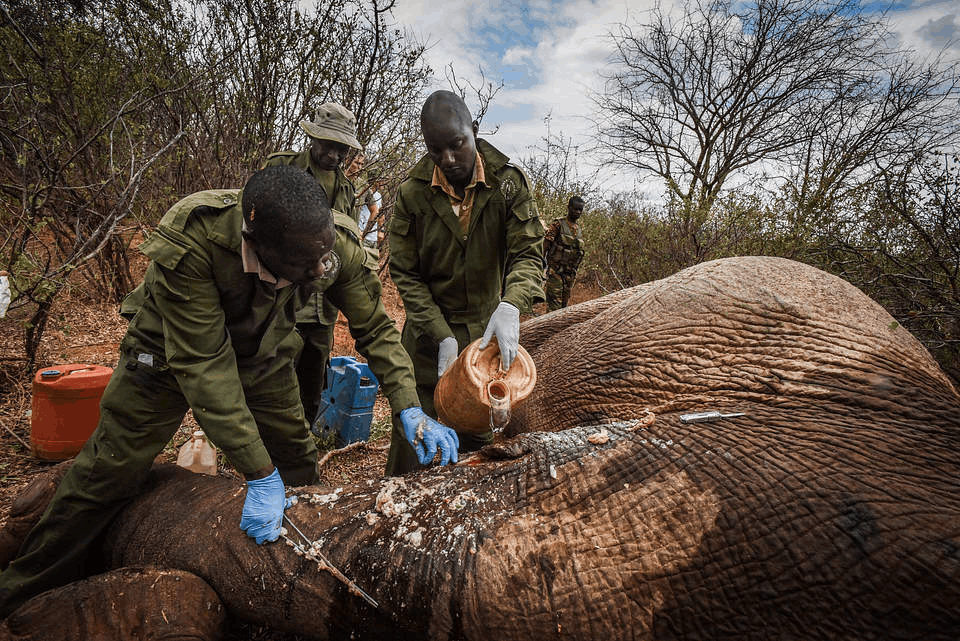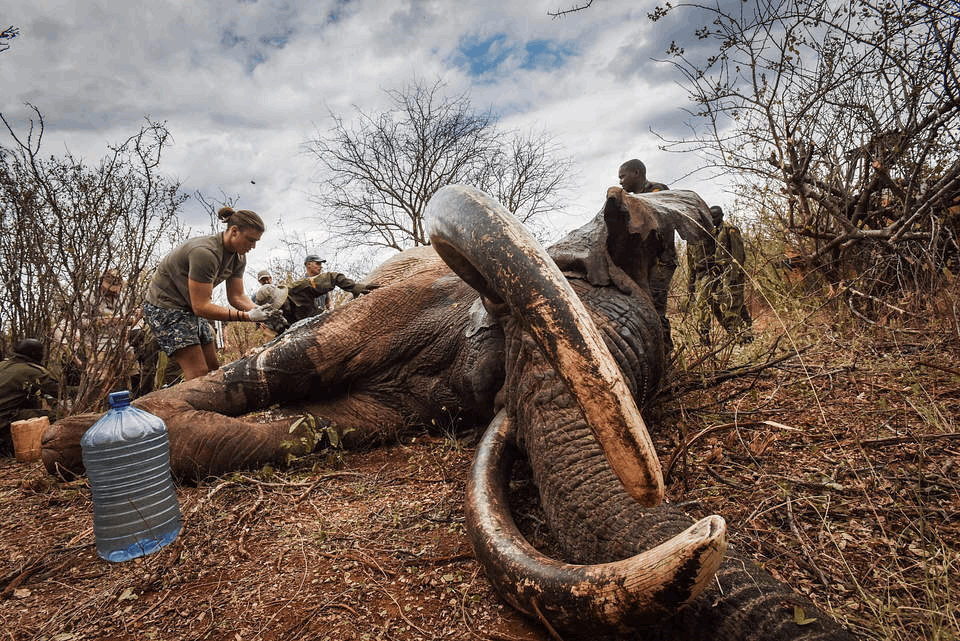In a daring rescue operation, the David Sheldrick Wildlife Trust (DSWT) and the Kenya Wildlife Service (KWS) collaborated to save a bull elephant that poison arrows had targeted in Tsavo.
The injured elephant was first discovered by Taru Carr-Hartley, Daphne’s grandson, late evening on July 22nd in the Northern Area of Tsavo.

Due to the challenging terrain and the situation’s urgency, DSWT pilots Taru and Neville Sheldrick took off at first light the next day to locate and assist the injured elephant.
After an intense three-hour aerial search on July 23rd, the injured bull was found within a highly dense bush.

A ground team with water, veterinary supplies, ropes, pangas, and axes prepared for the challenging case.
Darting the elephant from the ground was deemed unfeasible due to the dense vegetation, prompting the use of the DSWT helicopter.
KWS Veterinary Officer Dr. Jeremiah Poghon darted the bull from the stable and safe platform of the hovering helicopter.

Once darted, the team patiently waited for the elephant to fall. A DSWT pilot flying above the action guided the ground team vehicles through a thick bush to the recumbent elephant.
Dr. Poghon, the first responder, was dropped in an open clearing about 500 meters away from the elephant and guided to the location by the DSWT helicopter pilot.
Working swiftly and efficiently, the team treated two poisoned arrow wounds on opposite sides of the elephant’s body.

Necrotic flesh was removed, and the wounds were cleaned and treated with antibiotics and anti-inflammatory drugs. Natural green clay was packed into the wounds to aid the healing process.
The massive bull had to be rolled over onto the other side, accomplished with ropes strapped around his legs and a grader to haul his great weight over.
The anesthesia was then reversed, and with a few powerful movements, the elephant rose back to his feet.

Despite the confusion and likely lingering pain, the wounded elephant had a favorable prognosis, relieving the dedicated rescue team.
This successful operation underscored the effective partnership between DSWT and KWS in their ongoing efforts to save injured wildlife.
With unwavering support from DSWT donors, these organizations will persist in their mission to aid injured elephants and other wild species.

Over the years, the DSWT-funded Veterinary Units and Sky Vet, in collaboration with KWS, have attended to 2,362 elephants, showcasing the impact of their cooperation in wildlife conservation.
The collective efforts of the teams involved in this rescue demonstrate their dedication to saving lives and preventing tragic fatalities among Kenya’s wildlife.







